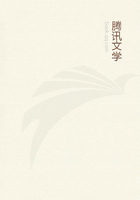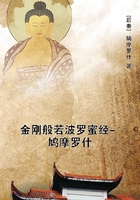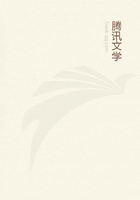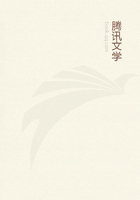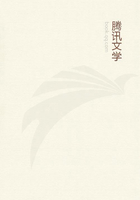So when we substitute for the individual organism the herd, the tribe, the nation, ascending to larger collective wholes, sustained by a clearer consciousness of unity and a fuller use of central conscious purpose, we follow the same economy of government.If, as is often urged, a nation, regarded as an organism, must be classed as a comparatively primitive type, on a level rather with the sponges or algae than with the higher animals, we shall expect to find that a very large measure of such 'wisdom' as it possesses will be instinctive rather than 'rational.' The evolution of a general will, whether operative by public opinion or governmental institutions, will on such a hypothesis possess no great degree of centrality or clear consciousness.Good government in such a society could not be compassed by an oligarchy or even a representative assembly assuming a measure of detailed and far-sighted policy for which the collective life was not yet ripe.A large measure of what from the rational standpoint would rank as 'opportunism' would be the true policy at such a stage of social evolution, and the wise statesman would keep his ear to the ground so as to learn the instinctive movements of the popular mind which would yield the best freight of political wisdom at his disposal.Only as education and closer and more reliable communications elevated the organic structure of Society, imparting higher spirituality, more centrality and clearer consciousness to its life, should we expect any considerable rationalisation of the general will.Meanwhile arise the temptation and danger of the formal instruments of government falling into the hands of a little highly self-conscious group or class, who may seek to impose upon the conduct of the nation its clearer plans and far-sighted purposes "under the name and pretext of the commonwealth." The absolute or actual wisdom of their will they will be apt to represent as embodying the reality of the general will.It is what they think 'the people' ought to will and therefore what the people will come to will as soon as they are really capable of willing intelligently!
It is, however, exceedingly important to try and recognise the instinctive wisdom of the people, in order that a misrepresentative government may be prevented from ignoring it and substituting the rationalism of some little conscious class.
This does not mean that a government must always govern and adapt its laws to the level of the current feelings, desires and aspirations of the average man, giving him no lead or stimulus to higher rationality.Such a course would be to ignore that capacity for progress and that susceptibility to proximate ideals which are themselves implanted in the instincts of mankind.But it does require that a government shall keep itself in the closest sympathy with the concrete feelings and ideas of the people, maintaining such contacts as shall enable its acts of policy to rank as substantially correct interpretations of the general will, not as the designs of a supreme governing caste or group of interests, pumped down through some artfully contrived electoral machinery so as to receive the false formal impress of 'the general will.'
These reflections upon the nature of popular government may appear to have carried us far afield.But they have been no irrelevant excursion.
For upon our view of the nature and measure of rationality to be imputed to the processes of reform or progress in national life must depend our view of the part which can be played by the social sciences which are invoked as the chief instruments of conscious collective conduct.
Recognising that social progress in all its departments remains always a collective art, inspired and sustained by creative impulses which owe neither their origin or their validity to science, we shall regard the social sciences as servants rather than directors of social progress.We shall be concerned to ask, What are the proper and particular services such sciences can render? How can they assist a people in utilising its human and natural resources for the attainment of the best conditions of human life, individual and social?
This work is written as a partial and illustrative answer to these questions.Taking industry, that department of social conduct most susceptible of the quantitative measurement which is the instrument of science, we have endeavored to construct and apply an organon of human valuation to its activities and achievements.Recognising that industry, regarded from the individual or the social standpoint, was an organic activity, involving continual reactions upon the whole life of the individual and the society, we insisted that the standard of valuation must be constructed in terms of organic well-being.In other words, industry, both from its productive and its consumptive side, must be valued in terms of individual and social health, that term being selected as the one which best expresses the conditions of conservation and of progress universally recognised as the essentials of a 'valuable' life.In the actual interpretation of this organic welfare, we took for our valuer 'enlightened' common-sense.The roots of this common-sense we find laid in the silent, instinctive organic strivings of mankind.It is the business of science, or organised knowledge, to direct these strivings so as to enable them to attain their ends more economically.It does this by interpreting experience and supplying the interpretation in the shape of 'laws' to enlighten common-sense and so enable it to choose its paths.
For the economy of blind instincts is only accommodated to simple activities in a stable environment, and is even then subject to enormous vital wastes.
For complicated activities in a rapidly changing and complex environment, a general instinct of adaptability of means to ends, involving conscious reflection, is required.Reason is this general instinct and science is its instrument.Society, as its processes of evolution become more conscious, will be able to use more profitably the services of science.Those services consist not in authoritative legislation for social conduct, for laws based upon experience of the past can have no full authority to bind the future.
Faith and risk-taking, involving large elements of the incalculable, are inherent in organic processes, and are the very sap of spiritual interest in life.They can never be brought under the dominion of a scientific economy.
But the main staple in every art of conduct is repetition and considered adaptation, resting upon a continuity of conditions.For this part of social conduct science, when sufficiently equipped, can and will offer authoritative advice.Throughout all nature the arts of conservation and creation run together.The art of conservation is the practical function of science:
the art of creation ever remains a region of beckoning liberty, continually annexed by science, and yet undiminished in its size and ts appeal.
'For all experience is an arch where through Gleams that untravelled land whose margin fades For ever and for ever as we move.'

